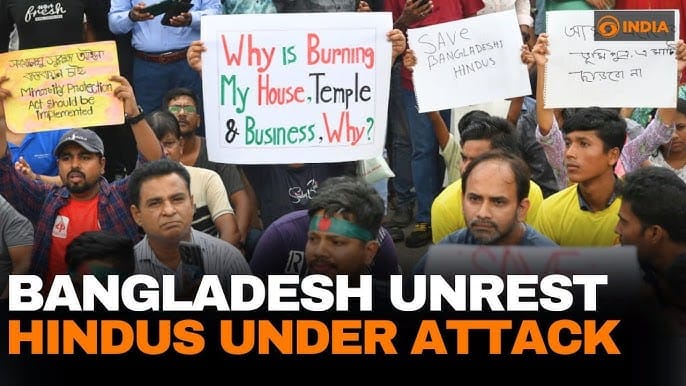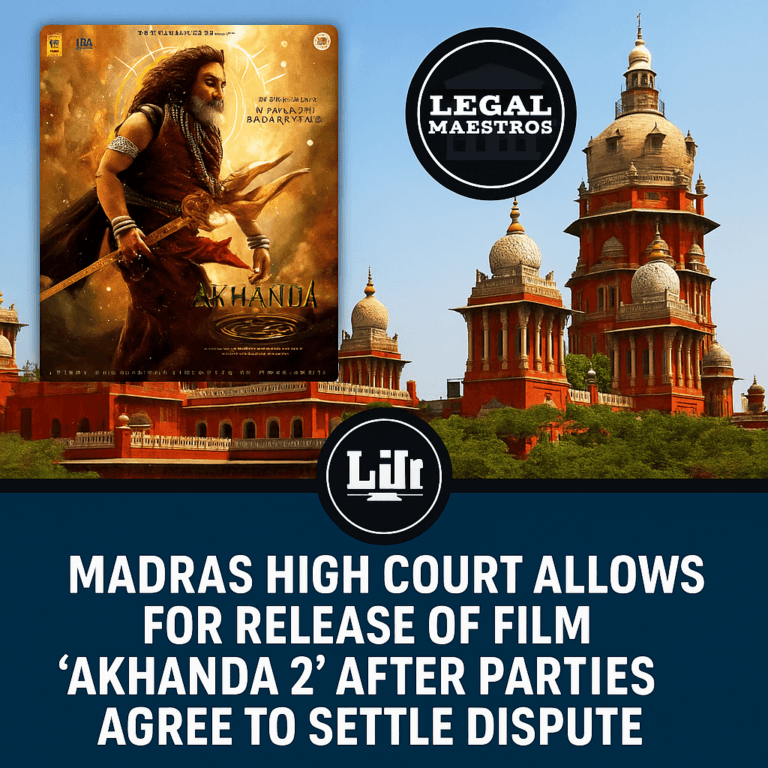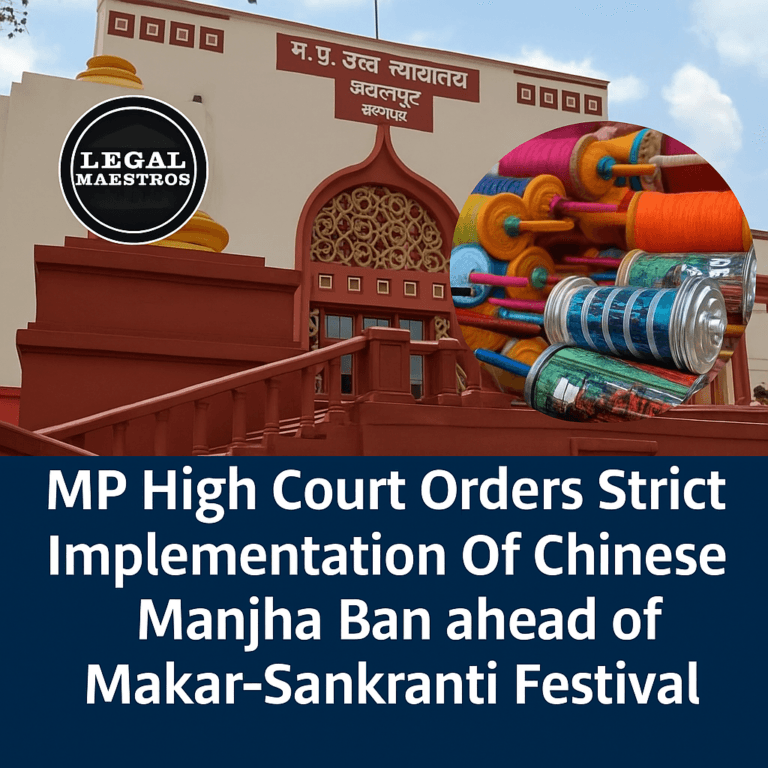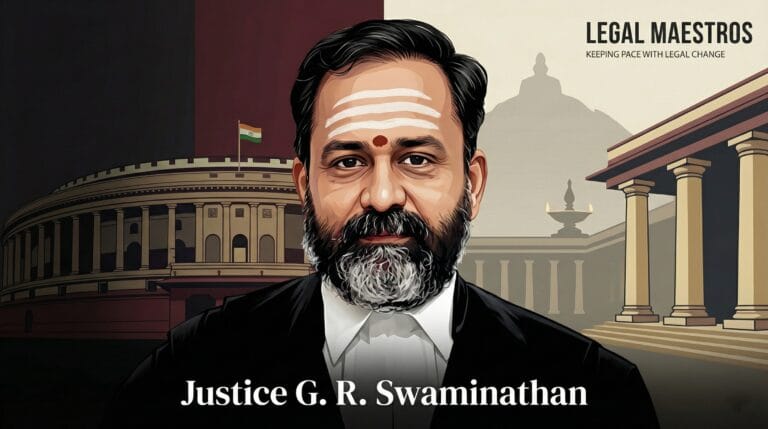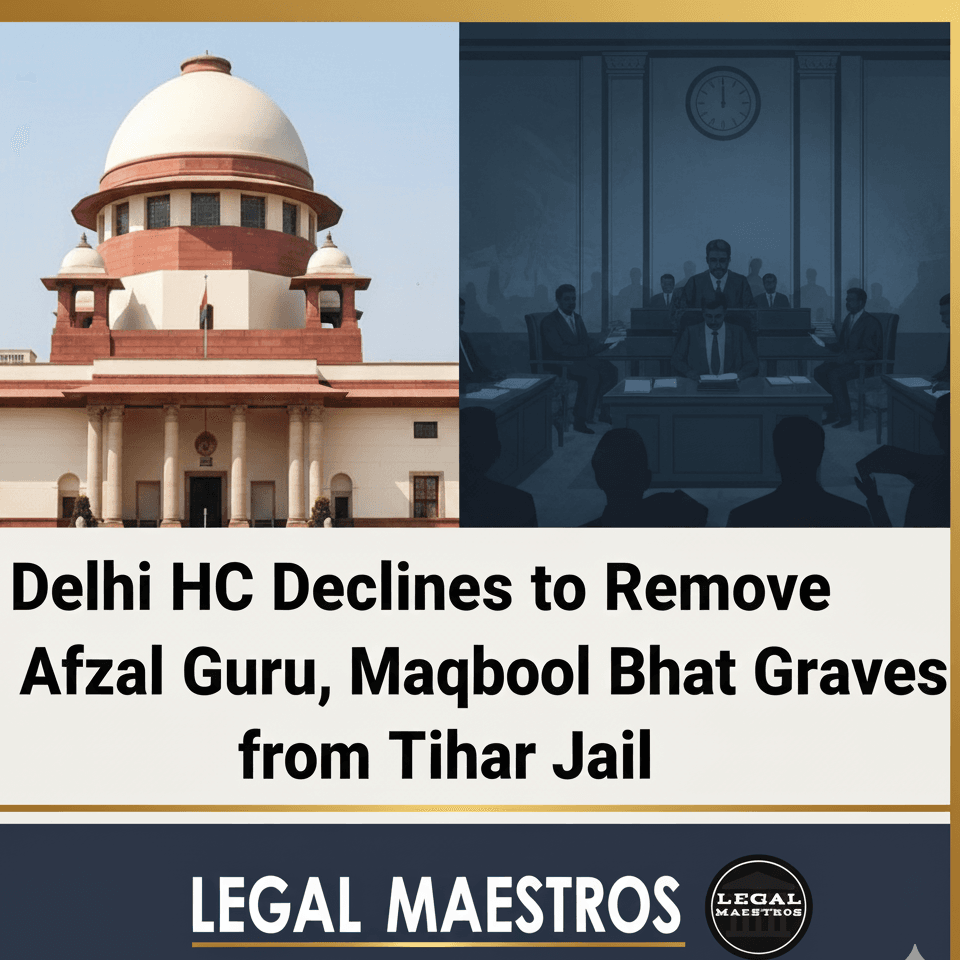
Delhi HC Declines to Remove Afzal Guru, Maqbool Bhat Graves from Tihar Jail
A Plea for Remains Denied
The Delhi High Court has rejected a petition application that sought exhumation of the mortal remains and handing back of the remains of Afzal Guru and Maqbool Bhat, who were executed and buried inside the Tihar Jail complex. The petition was made by a social activist to have their bodies taken to their families in Kashmir, where they could be given their last rites as per the religious practices of their families. The ruling puts into sharp focus an old and emotionally sensitive question which combines family rights, national security and the thorny politics underlying the Kashmir region.
The petitioner claimed that the families were entitled to having the right of carrying out the final rites of their dying relatives in the place of their own choice. They argued that this right is a fundamental right to the right to dignity in the Indian Constitution. The families have been in constant sorrow over the denial of this right and have been pushing to have the remains returned over the years. The plea was meant to give an answer to this very personal and political issue and request the court to instruct the central government to streamline the process.
In 2013, Afzal Guru was executed over his involvement in the 2001 attack on the Indian Parliament and in 1984, Maqbool Bhat was hanged, a co- founder of the Jammu Kashmir Liberation Front (JKLF). They were both buried in the Tihar Jail in Delhi in unmarked graves within the high security. The then government during their executions used security interests and the possible possibility of people turning violent in Kashmir as the main reasons as to why their bodies were not to be handed over to their families, a reason, which has stood firm with the change of administrations.
For any queries or to publish an article or post or advertisement on our platform, do call at +91 6377460764 or email us at contact@legalmaestros.com.
The petition basically questioned this long held government stance and requested the judiciary to step in where politics and administrative avenues had not been effective. It tried to put the problem in a different perspective that is not a political pressure but a humanitarian and legal right of the families. By taking the issue to the court the petitioner had hoped to persuade the state to change its mind and give the families the closure after decades of waiting.
The Court’s Rationale
The Delhi High Court gave several reasons in its refusal to grant the request, mainly based on the possibility of disrupting the normal peace and order. The court was concerned that the release and transfer of the bodies to Kashmir would spark passions and cause serious issues of law and order. The judges believed that the necessity of the state to uphold peace and security should be accorded a lot of importance, particularly in a region that has had a history of volatility. This was more critical than the humanitarian case put by the petitioner.
Moreover, the court doubted the time of filing the petition. It pointed out the significant gap in addressing the court of law, since the executions had been done many years and decades back. The demand of the families had not stopped but the legal challenge was raised many years after the events. Lapse of time was also considered by the court, and it may indicate that in the future such cases had to be brought before legal institutions earlier so that they would be properly evaluated.
The locus standi or legal standing of the petitioner was also considered by the court. It weighed whether a third party, in this instance a social activist, had the right as a matter of law to have such a plea as it filed on behalf of the families. Although it is typical of the public interest litigations, the court usually considers the direct relationship of the petitioner with the cause. The ruling meant a plea by the immediate family members could have had a different weight yet they had already been rejected in their earlier demands to the government.
Finally, the decision of the court is an act of judicial balancing between the rights of an individual and the security interests of the state as a whole. According to the judgment, the right to a dignified burial is acknowledged but not absolute, and can be restricted in certain cases, especially where the national security and the public order is felt to be threatened. The court also left the decision-making process of the state concerning the security situation untouched, in the sense that it did not impose its will on the government on whether or not the two men should be buried in the jail facility.
The Men Buried in Tihar
Maqbool Bhat was one of the leading figures in an early period of the history of Kashmiri separatist movement. Being one of the co-founders of Jammu Kashmir Liberation Front (JKLF), he promoted the independence of Jammu and Kashmir. The first time he was caught was during the 1960s and was linked with the murder of a police inspector. He was later sentenced to death after entangled events which included a flight to Pakistan and a subsequent flight back. His death in 1984 was hastened after a member of a JKLF-linked group had kidnapped and killed an Indian diplomat in the UK demanding the release of Bhat.
The Maqbool Bhat execution is widely believed to have been a crucial turning point that contributed to the armed insurgency in Kashmir during the late 80s. He is a martyr to many in the separatist movement and the call to repatriate his remains has become a theme in Kashmiri politics over the last thirty years. His interment in Tihar Jail was an intentional move by the government to ensure that his grave will not turn into a rallying point or a shrine of separatist supporters in the Kashmir Valley.
Afzal Guru was found guilty in his role regarding the 2001 terrorist attack on the Indian Parliament, one of the most daring attacks on the inner workings of the Indian democracy. Some of the security personnel were killed after the attack. The trial and consequent death sentence of Guru was extremely controversial, but there were questions about the fairness of the Court proceedings by some human rights organizations. His appeals to the higher legal authorities and the President of India were turned down, despite these fears.


